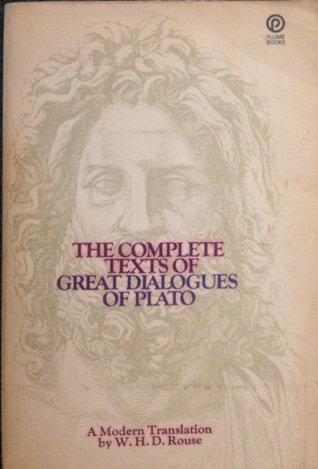What do you think?
Rate this book


597 pages, Paperback
Published March 1, 1970
...I thought this man seemed to be wise both to many others and especially to himself, but that he was not; and then I tried to show him that he thought he was wise, but was not. Because of that he disliked me and so did many others who were there, but I went away thinking to myself that I was wiser than this man; the fact is that neither of us knows anything beautiful and good, but he thinks he does know when he doesn't, and I don't know and don't think I do: so I am wiser than he is by only this trifle, that what I do not know I don't think I do. After that I tried another, one of those reputed to be wiser than that man and I thought just the same; then he and many others took a dislike to me.
So I went to one after another after that, and saw that I was disliked; and I sorrowed and feared...